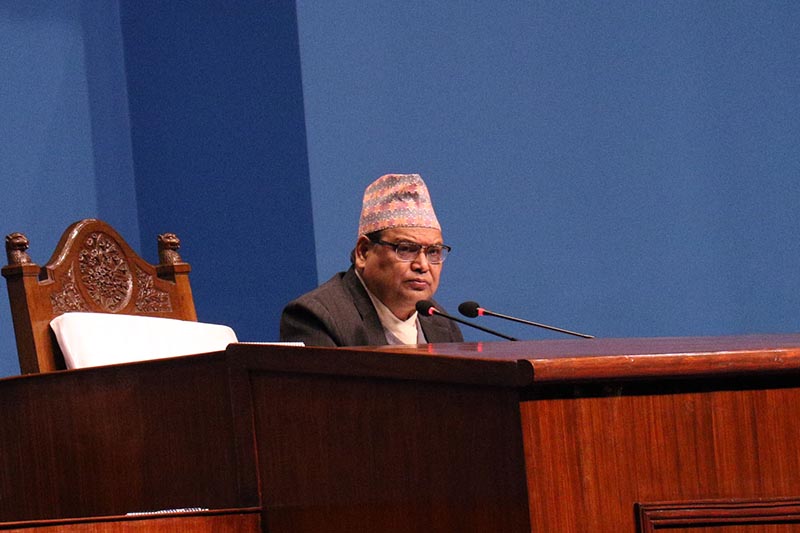Scan bills that curtail rights of sub-national govts: Speaker
Kathmandu, May 11
Speaker Krishna Bahadur Mahara directed the Parliament Secretariat not to forward bills to the Parliament that could prevent sub-national governments from exercising powers explicitly defined by the constitution.
Speaker Mahara gave the instruction in response to a request made by Province 5 Chief Minister Shankar Pokharel. Pokharel had met Mahara on Thursday. He, on behalf of all the provincial chief ministers, told the speaker that the Federal Parliament should hold consultation with sub-national governments before endorsing bills that could undermine the authority of provinces and local levels.
“The constitution has clearly defined the rights of the centre, provinces and local levels and powers that they can exercise,” Pokharel said. “So, the bills presented in the Parliament shouldn’t undermine the spirit of the constitution.”
Mahara had assured that the Parliament would not entertain bills that could infringe on the authority of sub-national governments.
“I have told the Parliament Secretariat to go through all the bills presented in the Parliament and see if they have provisions that could curtail the rights of provinces and local levels,” Mahara said.
Mahara also advised Pokharel to raise this issue during the Inter-State Council meeting, which is headed by the prime minister. “If the federal government is made aware of this issue we can nip the problem in the bud because it is the central government that prepares drafts of all the bills,” said Mahara, adding, “The Parliament Secretariat will also scan all the bills that have been registered in the Parliament.”
The Parliament Secretariat has registered 33 bills in the Parliament. Among them, 24 are in the lower House and nine are in the upper House. So far, it has been found that Peace and Security Bill, and Nepal Police and Provincial Police Bill include provisions that could curtail the rights of sub-national governments.
The bills are being examined at a time when provincial governments have criticised the federal government of trying to keep provincial police in the grip of chief district officers deputed by the centre. The federal government’s proposal to retain the right to appoint top provincial and local level officials also has not gone down well with sub-national governments. They have called this move an attempt to centralise power and have asked the federal government to give them the authority to hire employees on their own.
“Although the Parliament Secretariat does not have a special division to scan the bills, we will do as told by the speaker. If we come across controversial provisions, we will hold discussion with related institutions or officials.
We can discuss those issues with provincial governments too,” said a Parliament Secretariat official on condition of anonymity.
Nepal has embraced cooperative federalism, which means federal, provincial and local governments should work together to resolve common problems.






